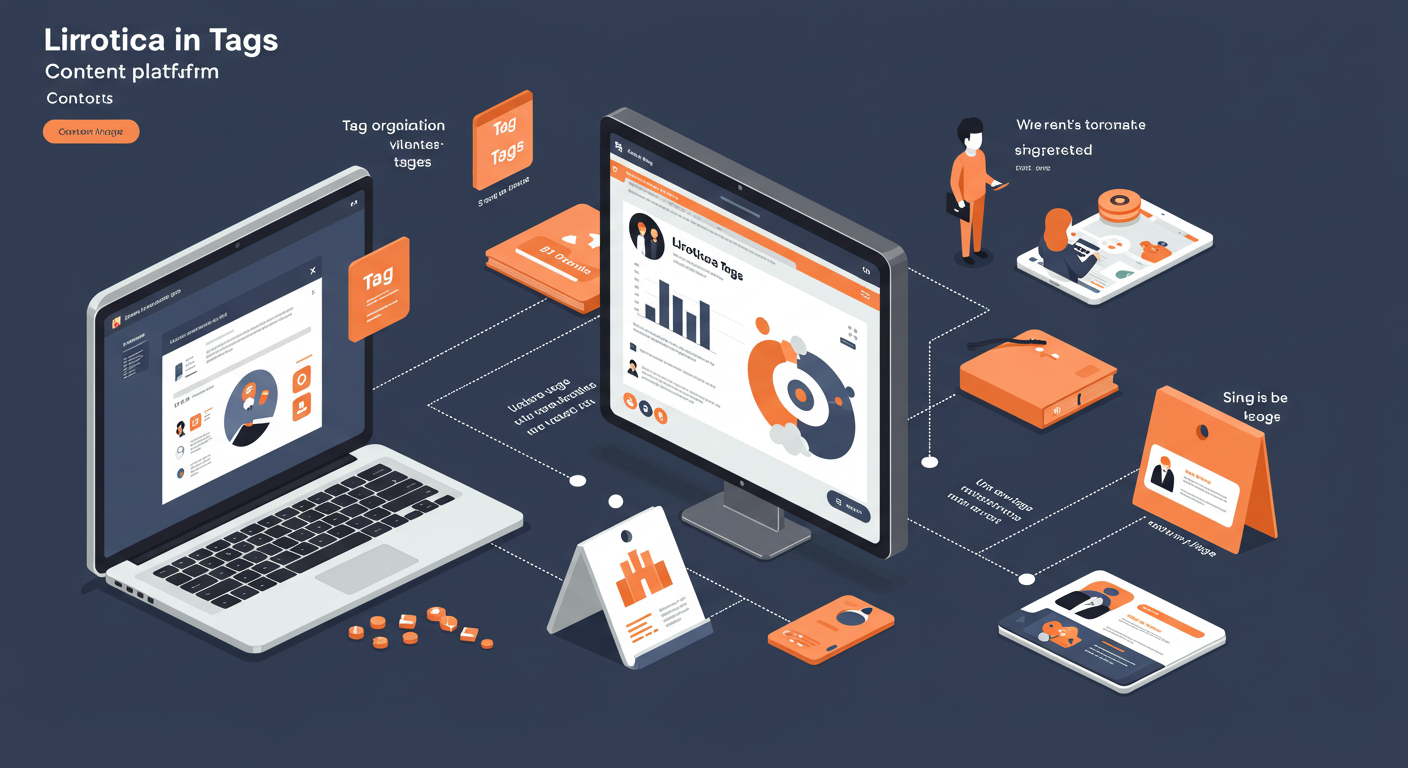In the vast and fast-moving digital world, organizing content for easy discovery is essential. Lirotica tags are a structured tagging system designed to make navigation more intuitive and search results more relevant. By assigning descriptive keywords or phrases to content, creators and platforms help users find exactly what they’re looking for—quickly and efficiently.
What Are Lirotica Tags?
Lirotica tags are metadata labels attached to pieces of content on the Lirotica platform. They function like an advanced indexing system, allowing users to filter, search, and browse based on specific topics, genres, or attributes.
For example, a piece of content could be tagged with:
-
“Science Fiction”
-
“Romance”
-
“Historical”
-
“Short Story”
The use of these tags ensures that the right audience discovers the right content.
Why Lirotica Tags Are Important
The digital landscape is overflowing with information, making it easy for great content to get lost. Lirotica tags solve this problem by:
-
Improving Search Accuracy: Tags help match search queries with relevant content.
-
Enhancing Content Discovery: Users can stumble upon related content they weren’t actively searching for.
-
Boosting Engagement: Better organization encourages users to explore more content.
How Lirotica Tags Work
-
Content Creation Stage
When a creator uploads content, they select relevant Lirotica tags based on the topic, theme, or style. -
Metadata Assignment
These tags are stored alongside the content in the platform’s database. -
Search and Filtering
Users searching for specific topics can filter results using these tags, ensuring they see only what’s relevant.
Best Practices for Using Lirotica Tags
-
Be Specific: Instead of “fiction,” use “historical fiction” or “cyberpunk fiction.”
-
Avoid Over-Tagging: Too many tags can dilute relevance.
-
Stay Consistent: Use standardized tag formats across similar content.
Common Types of Lirotica Tags
-
Genre Tags – e.g., “Horror,” “Fantasy,” “Drama.”
-
Theme Tags – e.g., “Coming of Age,” “Forbidden Love,” “Survival.”
-
Tone Tags – e.g., “Humorous,” “Dark,” “Whimsical.”
-
Audience Tags – e.g., “Adult,” “Young Adult,” “General.”
Benefits for Content Creators
Creators using Lirotica can:
-
Increase their content’s visibility.
-
Target specific audiences.
-
Analyze which tags bring in the most engagement.
Benefits for Readers and Viewers
For users, Lirotica:
-
Make searching more efficient.
-
Offer personalized recommendations.
-
Help discover niche topics and genres.
The Role of AI in Lirotica
Modern platforms like Lirotica often use AI to:
-
Suggest tags based on content analysis.
-
Recommend trending tags for higher visibility.
-
Identify irrelevant or redundant tags to keep the system clean.
Lirotica Tags and SEO
Proper tagging can improve a platform’s internal SEO. By structuring content with relevant Lirotica tags:
-
Search engines index pages more effectively.
-
Users are more likely to click and engage with tagged results.
-
Content remains evergreen by connecting with ongoing interests.
Challenges in Tag Management
-
Tag Overlap: Similar tags like “sci-fi” and “science fiction” can fragment results.
-
Spam Tagging: Using irrelevant tags to gain views can hurt credibility.
-
Inconsistent Usage: Without moderation, tags can lose standardization.
Moderation and Quality Control
Platforms often moderate Lirotica by:
-
Merging duplicate tags.
-
Removing misleading tags.
-
Encouraging community voting on tag relevance.
Future of Lirotica
In the coming years, we can expect:
-
AI-driven automated tagging systems.
-
More personalized tag-based recommendations.
-
Cross-platform tag integration for universal content discovery.
Conclusion
Lirotica tags are more than just labels—they’re an essential tool for digital organization, discovery, and engagement. By enabling smarter searches and more personalized recommendations, they benefit both creators and consumers, making the Lirotica platform a richer, more navigable space.
